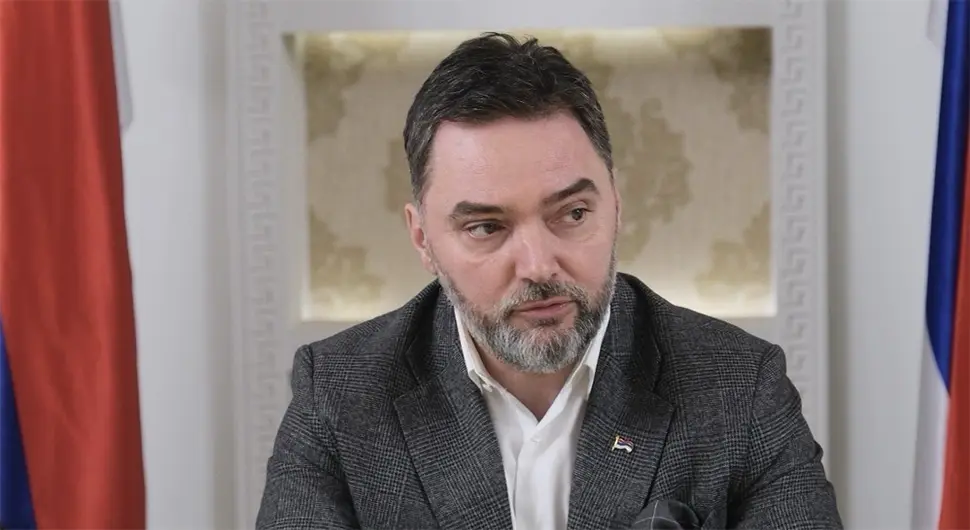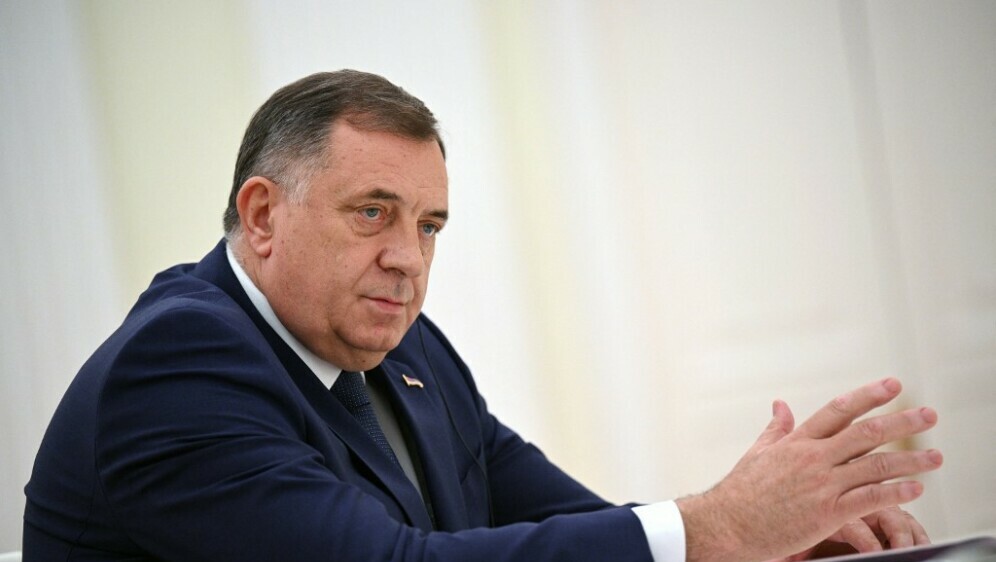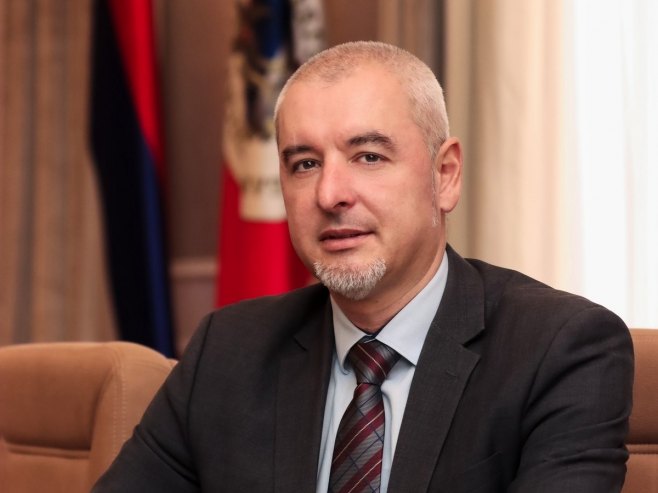A month or two ago, during a guest appearance on TV BH1, I stated that I would never confirm the indictment against Milorad Dodik. I briefly explained my reasoning, enough for any rational person to understand why. The host of the show was startled and asked whether I was supporting Dodik’s defense. Many readers of this text might think the same. But there’s nothing to be done—what kind of person, such an association.
By: Branko Perić (retired judge of the Court of Bosnia and Herzegovina)
What surprised me was that no one commented on my statement at the time. Honestly, it puzzled me. However, the political-judicial and media mafia, which controls the judiciary (and the state!), recently revived my statement and placed it within the context of the already familiar political circus orchestrated by Dodik’s parliamentary allies. I believe this was done to publicly discredit me yet again and simultaneously create an atmosphere conducive to delivering a guilty verdict.
Just as the media sensationalized the statement of a “retired judge,” the Court of Bosnia and Herzegovina issued a public statement accusing me of violating the Judicial Code of Ethics by expressing a “personal opinion about an ongoing case without being familiar with it.” Apparently, everything would have been fine had I been familiar with the case. According to the statement, I showed disrespect toward my former colleagues and “called into question public trust in the judicial system.”
I agree—I have no respect for my colleagues (and they know where they have disgraced themselves!). As for judicial ethics, I fail to see how someone who is no longer a judge can violate the Judicial Code of Ethics! But I’ve learned that in the judiciary, anything is possible. Both the guilty can be acquitted, and the innocent convicted. Judges have even faced disciplinary action for dissenting opinions, for example. And public trust in the judiciary has long ceased to exist, so it can hardly be undermined any further!
I’m addressing this reaction because it is both synchronized and equally nonsensical. It lacks sense, first because I’ve been retired for a year and am now merely a voice of the public, and second because, in a democratic society, the public has the right to discuss court cases even while they are ongoing, especially when they raise important social and legal questions. The judiciary’s regulatory body should know this.
The trial of a high-ranking official for a crime defined by a law imposed by a foreigner is a major legal and political issue that must be discussed in the broadest public dialogue. No one, including me, should be denied this right—especially since, as a lawyer, I know a thing or two about such matters. Given that I’ve been singled out and publicly marked by the media, I feel a duty to further elaborate on my opinion and legal stance, regardless of the ongoing trial.
I do so hoping to encourage public debate on crucial legal questions and the functioning of an independent judiciary. My opinion does not comment on the court’s actions or the judge’s opinion and does not represent any form of external pressure that could undermine the judge’s independence or impartiality. Expressing opinions within a professional dialogue, whether incorrect or legally relevant, cannot harm anyone but can certainly promote broader understanding of the issue.
Deficiencies in the indictment
Everything about the indictment against Milorad Dodik is questionable. It could more accurately be described as a disorganized submission rather than an indictment. The factual description makes no mention of the actual and procedural legitimacy of High Representative Christian Schmidt, who imposed amendments to the Criminal Code of Bosnia and Herzegovina and defined the crime of “Failure to Implement Decisions of the High Representative” (Article 203a of the Criminal Code).
Details about Schmidt’s legitimate appointment and his authority to enact laws (amend the Criminal Code of Bosnia and Herzegovina) are essential elements of the alleged crime. Without this description and evidence of these facts, there is no indictment. The pre-trial judge should have rejected such an indictment or returned it to the prosecutor for revision.
Why did the prosecutor avoid the issue of legitimacy?
The prosecutor avoided addressing legitimacy, knowing that the Dayton Agreement does not grant the High Representative the authority to suspend or assume legislative powers of the BiH Assembly. The authors of the Dayton Agreement knew that such powers would violate the UN Charter and the principle that legislative authority resides in representative bodies (parliaments).
Throughout the history of European parliamentarism, from the Magna Carta to today, individuals have never enacted laws. This principle is a cornerstone of European civilization, and no court should ignore it. A law that contradicts this legal principle should not be applied by any judge. German legal theorist Gustav Radbruch emphasized this in his famous essay, Five Minutes of Legal Philosophy.
Simply put, it is unimaginable that, in 21st-century Europe, an individual acting as a viceroy prescribes criminal offenses. This undermines European parliamentarism and the rule of law.
Since the Dayton Agreement does not authorize the High Representative to enact laws, the prosecutor will likely rely on the Bonn Powers and the previous practice of imposing laws by High Representatives. However, the Bonn Powers are not legal instruments, are not part of the Dayton Agreement, and have not become part of BiH’s legislative framework.
They are tools of political pressure to enforce imposed laws by parliamentary confirmation. Schmidt’s law did not undergo this procedure and, therefore, has no legal standing.
What constitutes a criminal offense?
Additionally, Article 20 of the Criminal Code of Bosnia and Herzegovina states that a “criminal offense is an unlawful act prescribed as a criminal offense, whose elements are defined by law and for which a legal sanction is prescribed.”
It is clear that the legislator intended that the elements of a criminal offense must be defined by a criminal law adopted by parliament following proper legislative procedures. Such procedures include proposing the law by an authorized entity, parliamentary debate, public hearings, drafts, and final adoption by the legislative body.
The legislator could not have envisioned an individual drafting criminal laws!
What did Dodik sign?
Finally, the indictment contains a procedural paradox that casts doubt on its author’s competence. According to the evidence presented, Milorad Dodik signed the decree proclaiming the law on July 7, 2023, while Christian Schmidt issued the decision suspending the legislative process for this law on July 1, 2023—before Dodik’s decree.
If Schmidt suspended the legislative process, what did Dodik actually sign? He signed something that legally does not exist! Therefore, he could not have committed a crime.
Undermining BiH’s sovereignty
This indictment against Dodik undermines the sovereignty of Bosnia and Herzegovina as a UN member state. The UN Charter does not recognize diminished sovereignty or the transfer of sovereignty to other institutions, let alone individuals. Such practices threaten international law, legal norms, and diplomatic customs.
This legal and political farce will end one way or another, as will this neo-colonial European episode with the OHR and High Representatives. What will remain is the sad memory of glorifying foreign officials and their role in preserving BiH’s sovereignty.
Source: Banjaluka.net









